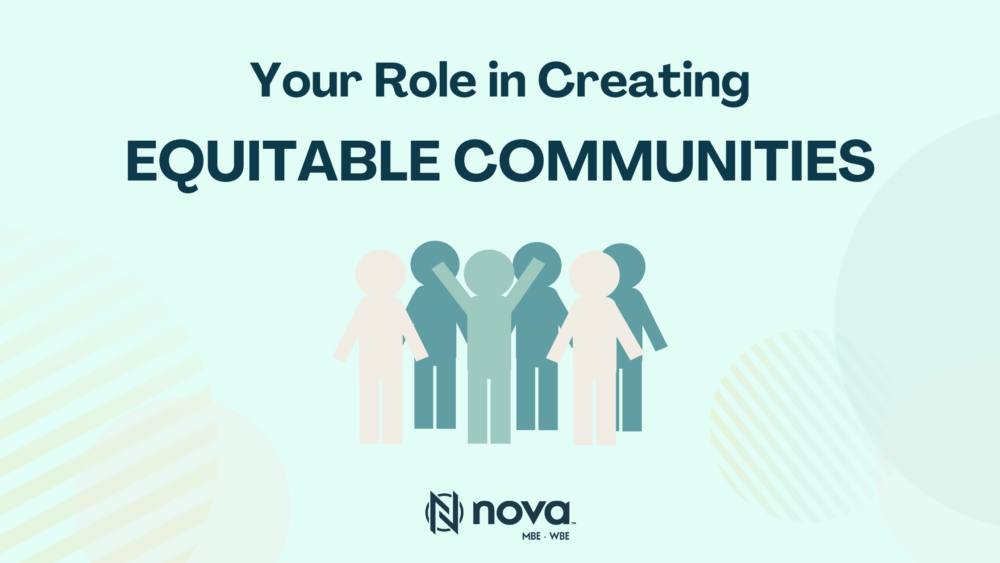Diversity, Equity, and Inclusion is a multifaceted approach to recognizing and embracing individuals and their identities. It’s not about tolerating differences, but actively appreciating them as a source of strength for our workplaces and communities. DEI promotes an environment where every person, regardless of their race, gender, sexual orientation, or ability, experiences equitable opportunities in work and in life.
DEI is often seen as an issue for organizational leadership and government structures to address. But it’s essential to recognize that each individual plays a crucial role in fostering equitable communities. DEI is a collective endeavor, and you have a role.
What’s your role in DEI?
Everyone can contribute to promoting diversity, ensuring equity, and fostering an inclusive environment. Here are some key ways you can play your part in DEI:
1. Cultivate Awareness:
The first step in contributing to DEI is to become aware of your own biases. Self-reflection helps you recognize unconscious biases that might affect your perceptions and behaviors towards others. By understanding personal biases, you can actively work to challenge them.
2. Educate Yourself:
Knowledge is a powerful tool to resist discrimination and inequality. You can expand your own reference points to educate yourself about different cultures, histories, and experiences. Focus on information and content written by people with different identities, experiences, and perspectives from your own.
3. Promote Inclusion:
Inclusive actions create a welcoming environment for all individuals. This can look like using inclusive language, creating space for diverse perspectives, and actively engaging with people with identities and experiences that are different from your own.
4. Amplify Underrepresented Voices:
You can use your influence to amplify the voices of others. This can be done by elevating stories, acknowledging achievements, and providing opportunities for other people when you have power or a platform in a given environment.
5. Support Inclusive Policies:
You can advocate for policies and practices that promote diversity and equity in your workplace, school, and community. This could involve supporting organizations that champion DEI initiatives or participating in advocacy efforts.
6. Challenge Discrimination:
When witnessing discriminatory behavior or microaggressions, you can speak up and intervene. Showing up as an ally takes practice, and it’s work worth doing.
7. Engage in Dialogue:
Open and candid conversations are essential for building healthy communities. Ask questions and get curious about the people you work and interact with every day.
8. Participate in DEI Initiatives:
You can actively participate in DEI initiatives and events within your communities. This could involve joining diversity committees, attending workshops on inclusivity, or volunteering with organizations that promote social justice.
9. Lead by Example:
Demonstrating inclusive behavior in personal and professional interactions can inspire others to follow suit. Leading by example shows that embracing diversity and promoting equity are essential values that can positively impact individuals and communities.
10. Continuously Learn and Evolve:
DEI is an ongoing process that requires continuous learning and growth. You can practice this and model it for others by remaining open to feedback and being willing to adapt your perspectives and actions.
Your role in DEI is critical to effecting positive change. By cultivating awareness, educating yourself, promoting inclusion, and supporting underrepresented voices, you can contribute to a more equitable and inclusive world. It’s through collective efforts and a commitment to understanding and embracing diversity that we can build a society where every individual is valued, respected, and has the opportunity to thrive.

